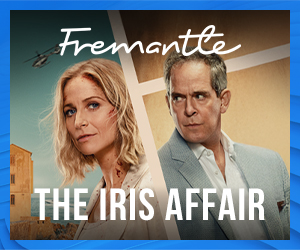
Hansal Mehta has never been this popular. Vanita Kohli-Khandekar spoke to the veteran Indian filmmaker about balancing commerce and creativity, streaming, cinema, investing in writers and the truths that are best told through fiction.
Hansal Mehta and Mrunmayee Lagoo Waikul’s Scoop, based on Jigna Vora’s memoir Behind Bars in Byculla: My Days in Prison, is a fantastic watch. Vora, deputy bureau chief at The Asian Age (India), was wrongly implicated in the 2011 murder of Mid-Day crime reporter, Jyotirmoy Dey (or J Dey). She was released on bail after nine months in prison, and was acquitted in 2018.
Released on 2 June, Scoop spent eight weeks on Netflix’s Top 10 shows in India, gaining traction in South Asian markets and parts of the Middle East. Mehta’s earlier series, Scam 1992 (2020), based on the Harshad Mehta scam, helped revive the fortunes of the then struggling Indian streamer, SonyLIV.
The success of Scam 1992 and Scoop in South Asia has focused attention on Mehta’s brand of storytelling – dramatised contemporary history. In June this year, Netflix signed a multi-year series partnership with Mehta, who has been making TV shows and award-winning films since the 1990s. But this is the first time his popularity has hit these levels.
What do Scoop and Scam1992 mean for you? “They have given me the drive and motivation to keep making the stories I do.”
Isn’t balancing commerce and creativity the eternal struggle in cinema? “Every story, every film, has its audience. As a business we need to find and reach that audience and understand the film we are making, Whether I make a Faraaz (2022) or (Siddarth Anand’s) Pathaan (2023) the promotion is in the same way. The marketing teams, PR teams don’t really focus on content and use the content to reach the audience. We are in these templatised times. We have forgotten that we have an audience to reach.”
What is streaming doing to the creative and business of cinema? “It is about people going to the cinema and cinema coming to you. The primary difference between the cinema-going experience and the streaming experience is experiential. Faraaz released and disappeared. But, on Netflix, it was on the top of the charts for nearly three weeks in India and other countr...
Hansal Mehta has never been this popular. Vanita Kohli-Khandekar spoke to the veteran Indian filmmaker about balancing commerce and creativity, streaming, cinema, investing in writers and the truths that are best told through fiction.
Hansal Mehta and Mrunmayee Lagoo Waikul’s Scoop, based on Jigna Vora’s memoir Behind Bars in Byculla: My Days in Prison, is a fantastic watch. Vora, deputy bureau chief at The Asian Age (India), was wrongly implicated in the 2011 murder of Mid-Day crime reporter, Jyotirmoy Dey (or J Dey). She was released on bail after nine months in prison, and was acquitted in 2018.
Released on 2 June, Scoop spent eight weeks on Netflix’s Top 10 shows in India, gaining traction in South Asian markets and parts of the Middle East. Mehta’s earlier series, Scam 1992 (2020), based on the Harshad Mehta scam, helped revive the fortunes of the then struggling Indian streamer, SonyLIV.
The success of Scam 1992 and Scoop in South Asia has focused attention on Mehta’s brand of storytelling – dramatised contemporary history. In June this year, Netflix signed a multi-year series partnership with Mehta, who has been making TV shows and award-winning films since the 1990s. But this is the first time his popularity has hit these levels.
What do Scoop and Scam1992 mean for you? “They have given me the drive and motivation to keep making the stories I do.”
Isn’t balancing commerce and creativity the eternal struggle in cinema? “Every story, every film, has its audience. As a business we need to find and reach that audience and understand the film we are making, Whether I make a Faraaz (2022) or (Siddarth Anand’s) Pathaan (2023) the promotion is in the same way. The marketing teams, PR teams don’t really focus on content and use the content to reach the audience. We are in these templatised times. We have forgotten that we have an audience to reach.”
What is streaming doing to the creative and business of cinema? “It is about people going to the cinema and cinema coming to you. The primary difference between the cinema-going experience and the streaming experience is experiential. Faraaz released and disappeared. But, on Netflix, it was on the top of the charts for nearly three weeks in India and other countries in Asia, and on the top 10 films worldwide for two consecutive weeks. It goes to show that there was an audience. We did not find it in theatrical. We found that audience on streaming.”
What attracts you to a story? “It is a very personal process. I read a story and see how compelling I find it emotionally. I like to reflect on it, wait before I respond to it. Some stories you like instantaneously but it doesn’t stay with you. For me to want to make it, it has to stay with me. The characters have to stay with me. I need to find a compelling character before I find a compelling story. Lots of my good work has been character driven. For example, Shahid (2012) is about a lawyer, Shahid Azmi; Aligarh (2015) is about Professor Siras. Even Citylights (2014) is about Deepak Singh and his family. Scam 1992 was about Harshad Mehta and the whole family unit and about Sucheta Dalal (the journalist who broke the story). Those people, those characters were compelling. Ditto for Jagruti Pathak (the protagonist in Scoop). The entire ecosystem around her was compelling. For me, the plot comes after the characters.”
How much do you fictionalise? “There is an element of dramatisation, of fictionalisation. You take an informed decision. These decisions are taken jointly with the platform, the studios, the entire creative team. And also during the writing process, depending on how much liberty you are taking with the available material. How much you are compositing characters. I have to tell an engaging story. To tell that there is a certain path I have to choose... For example, Scoop is inspired by Jigna Vora’s book, but we realised that there is a story outside the book that we wanted to tell. In order to be able to tell that story, we had to rely on a lot of research, lots of things people told us. Then, based on what people told us and what we found during research, we realised that we had to dramatise and fictionalise some characters. But in all of that there is an authenticity, some truth hidden in that fiction.”
How difficult is it to adapt a book? Especially a business book... “I find business very fascinating. Adapting Scam, Sucheta Dalal and Debashis Basu’s book, was quite a ride. To find the personal story in the middle of all that factual overload is a challenge and I enjoy it thoroughly. In a previous life I was part of the corporate grind, I worked in IT. That world fascinates me. Scam was just the beginning. Hopefully, I will get the opportunity to deep dive into this world further. No show has held my attention and captivated my imagination the way a show like Succession or the way Mad Men did many years ago. It deep dives into a world that seems boring and dry from outside. But when you deep dive you see another side.”
What were the tough parts or ‘aha’ moments in Scam and Scoop? “Every story you tell cuts into a part of you. It is a piece of your heart that you put out there. These are emotionally exacting stories. And they are also mentally stimulating but take away a lot of time. The big moment for me was when we found Harshad Mehta. It was when I found Pratik Gandhi (who played Harshad) and the first day I shot with him. In Scoop, it was getting (soap opera star) Karishma Tanna for that part. Within my circle, my people, there was lot of resistance to that choice. Why take someone from TV? Karishma Tanna and Harman Baweja (who plays a senior cop and pivotal character in Scoop), these were the two choices that were not difficult choices but when we look back they were inspired choices.”
How is Gandhi (based on Ramchandra Guha’s books and produced by Applause) shaping up? How tough is it? “It is a challenging task. But am enjoying it thoroughly. There is no more important time than now to tell Mahatma Gandhi’s story to the world. I find his character extremely compelling. Pratik is playing Gandhi. The casting, both Indian and international, is in process.”
If one compares Indian shows with Korean, Turkish, Nordic shows, where do you see India? Do you see India making it to the global stage? “The big breakthrough is around the corner. Let us focus on India first. Streaming has yet to penetrate the entire length and breadth of the country the way TV did. If we succeed in a larger way in our own country, the international audience will embrace it. We cannot design our shows for the international audience, we need to tell authentic Indian stories.”
So the cross over, if any, has to happen on technology, production etc? “We are doing well there. We need to invest in writers, not only in paying them to write but helping them evolve as top-quality writers. Technologically, we have advanced a lot but creatively we need to grow further. And that can only happen with a healthier exchange among the community globally with workshops for writers and creators. Craft wise we can learn by exchange of knowledge globally.”





























